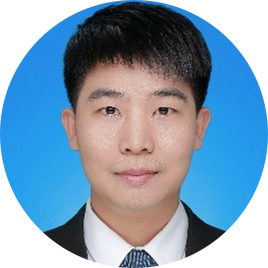Chair: Assoc. Prof. Li Ma, Institute of Electrical Engineering, Chinese Academy of Sciences, China

Li Ma is an associate professor at the Institute of Electrical Engineering, Chinese Academy of Sciences, and Deputy Director of the Key Laboratory of Long-duration Energy Storage (CAS). She received the B.S., M.S., and Ph.D. degrees from North China Electric Power University, Beijing. She has been selected for the CAS "Hundred Talents Program" and received priority support. She is an IEEE Senior Member and a Senior Member of the Chinese Society for Electrical Engineering. From 2018 to 2021, she conducted postdoctoral research at the University of Wisconsin-Milwaukee and Stevens Institute of Technology in the United States. Her primary research focuses on the planning and operational optimization of power distribution systems, including demand-side response, energy storage configuration, and distribution network topology identification, etc. She has led one general project under the National Natural Science Foundation of China (NSFC), two tasks of NSFC Joint Fund and State Grid Corporation Headquarters S&T Project, and undertook one UK Royal Society International Exchanges Project as the Chinese Principal Investigator. Additionally, as a core researcher, she has participated in over 20 national key projects, including the National Key R&D Program, and NSFC Key/General Programs. She has published over 50 papers in prestigious domestic and international journals and conferences, accumulating more than 3,000 citations.
Co-chair: Prof. Zhaoxi Liu, South China University of Technology, China
 Zhaoxi Liu (Senior Member, IEEE) received his bachelor and master degrees from Tsinghua University and his Ph.D. degree from Technical University of Denmark (DTU). He is currently a professor at the School of Electric Power Engineering, South China University of Technology. He has over ten years of experience in the academic research and industrial projects of power and energy engineering in China, Denmark and the United States. He has contributed to more than fifteen large-scale industrial power engineering projects. He has published more than 50 articles as the author or co-author in journals, as book chapters or in conference proceedings. His research interests include power system operation and control, power system security and risk management, and the integration of renewable energy sources and distributed energy resources in energy systems.
Zhaoxi Liu (Senior Member, IEEE) received his bachelor and master degrees from Tsinghua University and his Ph.D. degree from Technical University of Denmark (DTU). He is currently a professor at the School of Electric Power Engineering, South China University of Technology. He has over ten years of experience in the academic research and industrial projects of power and energy engineering in China, Denmark and the United States. He has contributed to more than fifteen large-scale industrial power engineering projects. He has published more than 50 articles as the author or co-author in journals, as book chapters or in conference proceedings. His research interests include power system operation and control, power system security and risk management, and the integration of renewable energy sources and distributed energy resources in energy systems.
Co-chair: Prof. Qifang Chen, Beijing Jiaotong University, China
 Qifang Chen, Professor with the School of Electrical Engineering Beijing Jiaotong University. He is the Senior member of CSEE, IEEE member, member of IEEE PES China Electric Vehicle Technical Committee, member of IEEE PES energy Internet Technical Committee, outstanding young talents of Beijing. He is a member of Young editorial board member of the journal of 《China Electric Power》. He worked as session chair on 2022 the 12th International Conference on Power and Energy Systems. His research interests include low carbon distribution network, Transportation and Energy Integration and V2G technology. He is undertaking two research projects supported by the National Natural Science Foundation, two research projects supported by National Key Research and Development Program. He has published more than 40 academic papers, 2 ESI high cited paper. He won the Second Prize of Natural Science Award of the Ministry of Education and the Third prize of Science and Technology Progress Award of Zhejiang Province.
Qifang Chen, Professor with the School of Electrical Engineering Beijing Jiaotong University. He is the Senior member of CSEE, IEEE member, member of IEEE PES China Electric Vehicle Technical Committee, member of IEEE PES energy Internet Technical Committee, outstanding young talents of Beijing. He is a member of Young editorial board member of the journal of 《China Electric Power》. He worked as session chair on 2022 the 12th International Conference on Power and Energy Systems. His research interests include low carbon distribution network, Transportation and Energy Integration and V2G technology. He is undertaking two research projects supported by the National Natural Science Foundation, two research projects supported by National Key Research and Development Program. He has published more than 40 academic papers, 2 ESI high cited paper. He won the Second Prize of Natural Science Award of the Ministry of Education and the Third prize of Science and Technology Progress Award of Zhejiang Province.
Co-chair: Dr. Yafei Yang, Shaanxi University of Science and Technology, China
 Dr. Yafei Yang earned her B.Eng. in Electrical Engineering and Automation and Ph.D. in Control Science and Engineering both from Xi’an Jiaotong University. She served as a Researcher at the Midcontinent Independent System Operator (MISO) in the U.S., concurrently holding postdoctoral positions at Clarkson University and Stevens Institute of Technology. After that, she joined the School of Electrical and Control Engineering at Shaanxi University of Science and Technology. Her research focuses on cyber-physical energy systems, security and economics of complex networked systems, electricity market bidding and game theory, and data-driven optimization. She has published over 20 papers in top-tier journals and conferences, including IEEE Transactions on Power Systems, IEEE Transactions on Smart Grid, and IEEE Transactions on Sustainable Energy, and holds one U.S. granted patent. Her accolades include XJTU’s Outstanding Doctoral Dissertation Award, the Xu Zongben Applied Mathematics Prize, and IEEE Transactions on Power Systems’ Best Reviewer recognition.
Dr. Yafei Yang earned her B.Eng. in Electrical Engineering and Automation and Ph.D. in Control Science and Engineering both from Xi’an Jiaotong University. She served as a Researcher at the Midcontinent Independent System Operator (MISO) in the U.S., concurrently holding postdoctoral positions at Clarkson University and Stevens Institute of Technology. After that, she joined the School of Electrical and Control Engineering at Shaanxi University of Science and Technology. Her research focuses on cyber-physical energy systems, security and economics of complex networked systems, electricity market bidding and game theory, and data-driven optimization. She has published over 20 papers in top-tier journals and conferences, including IEEE Transactions on Power Systems, IEEE Transactions on Smart Grid, and IEEE Transactions on Sustainable Energy, and holds one U.S. granted patent. Her accolades include XJTU’s Outstanding Doctoral Dissertation Award, the Xu Zongben Applied Mathematics Prize, and IEEE Transactions on Power Systems’ Best Reviewer recognition.
